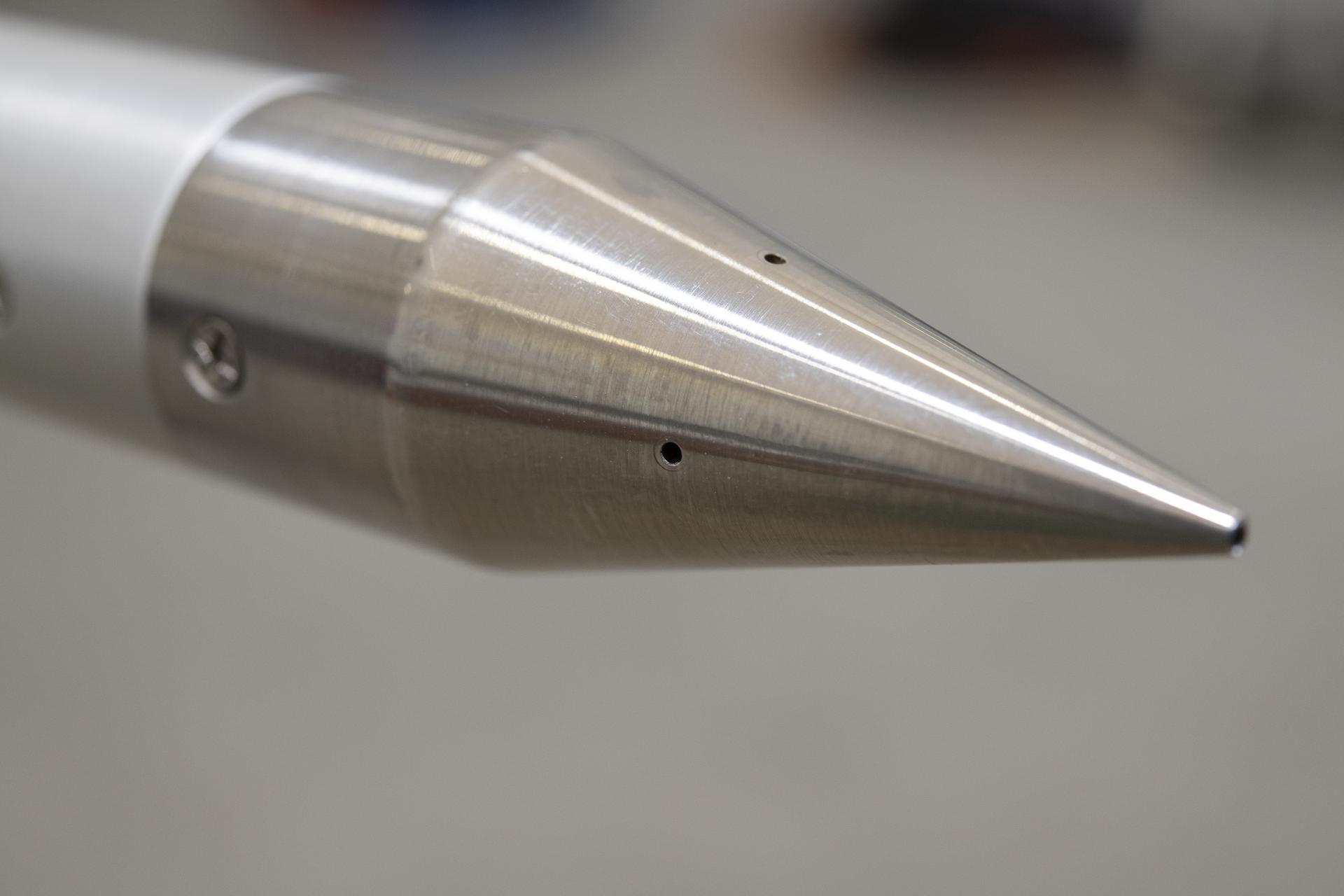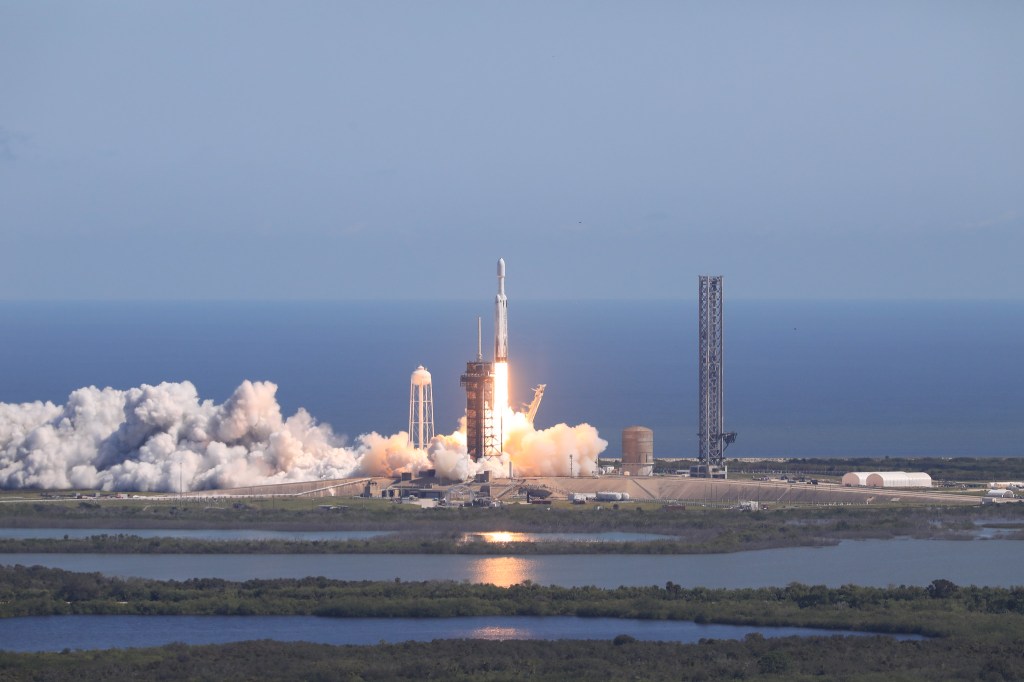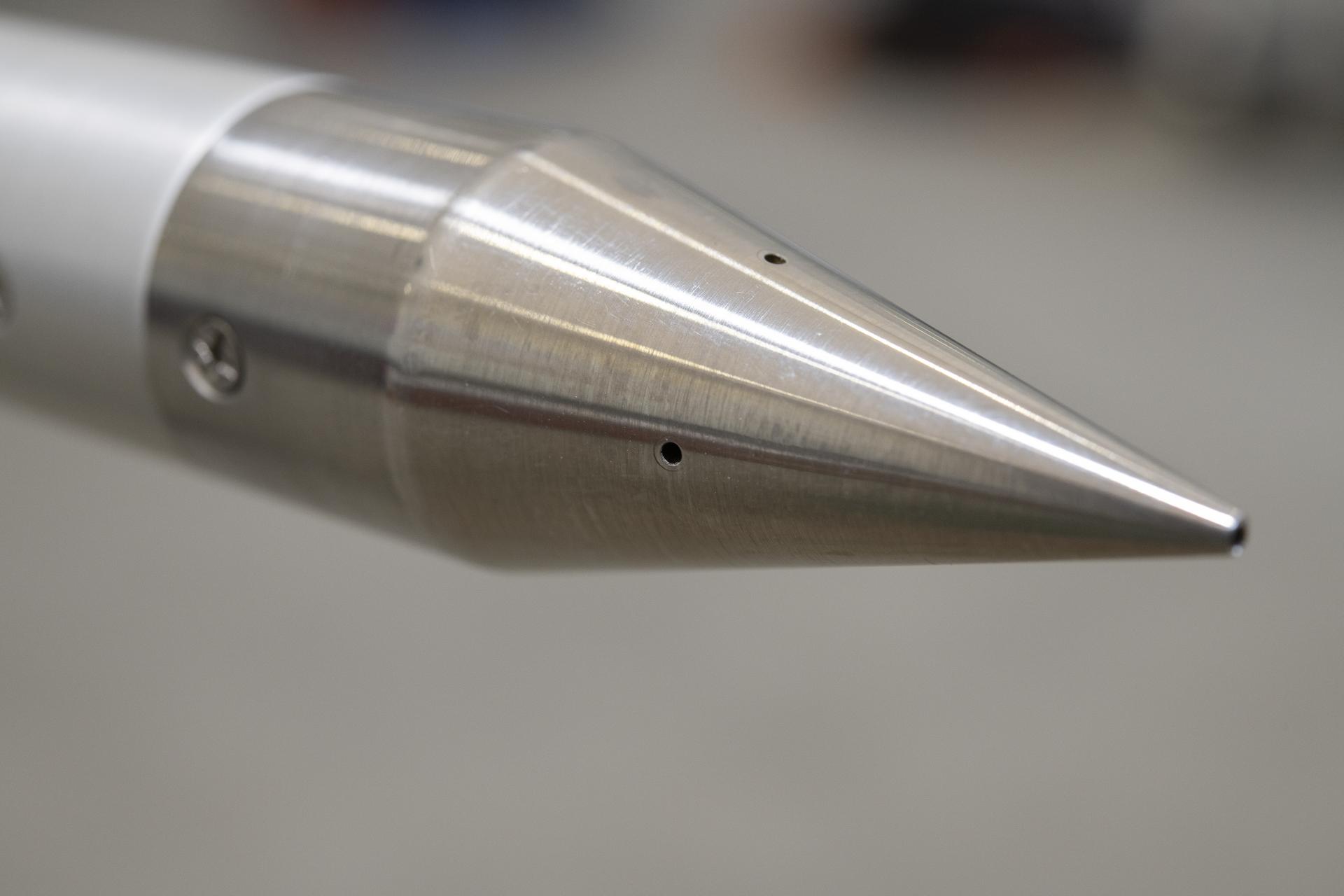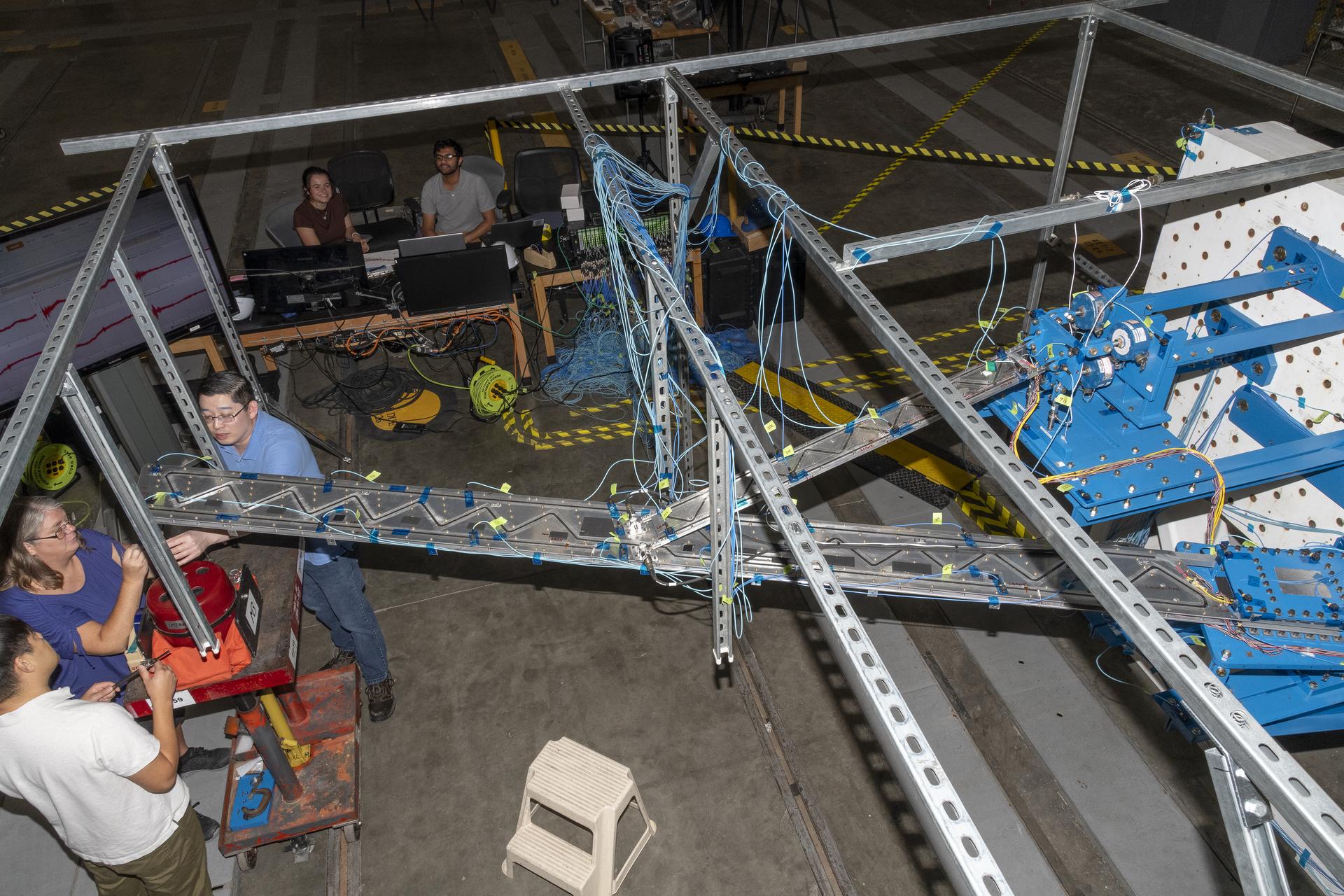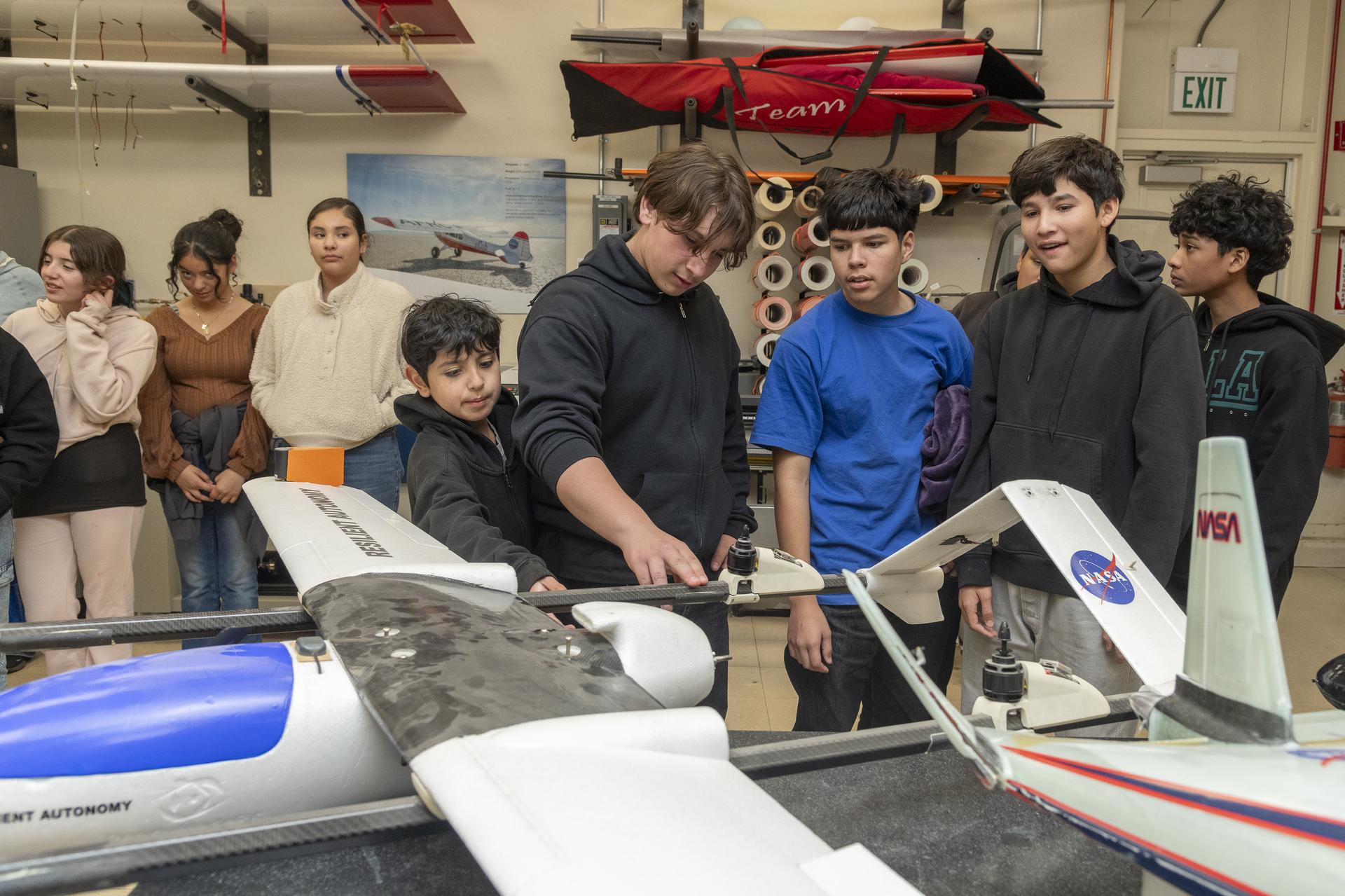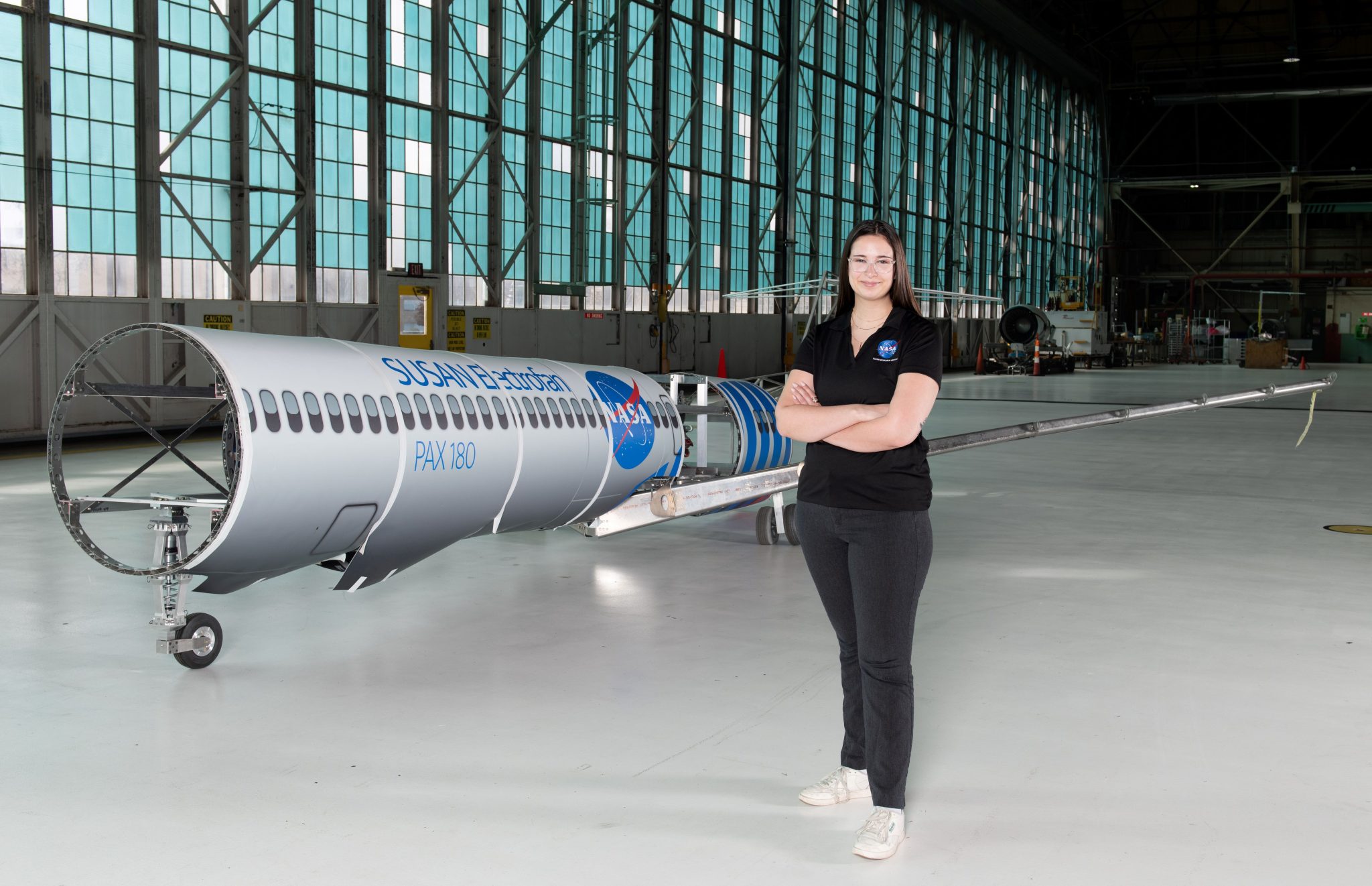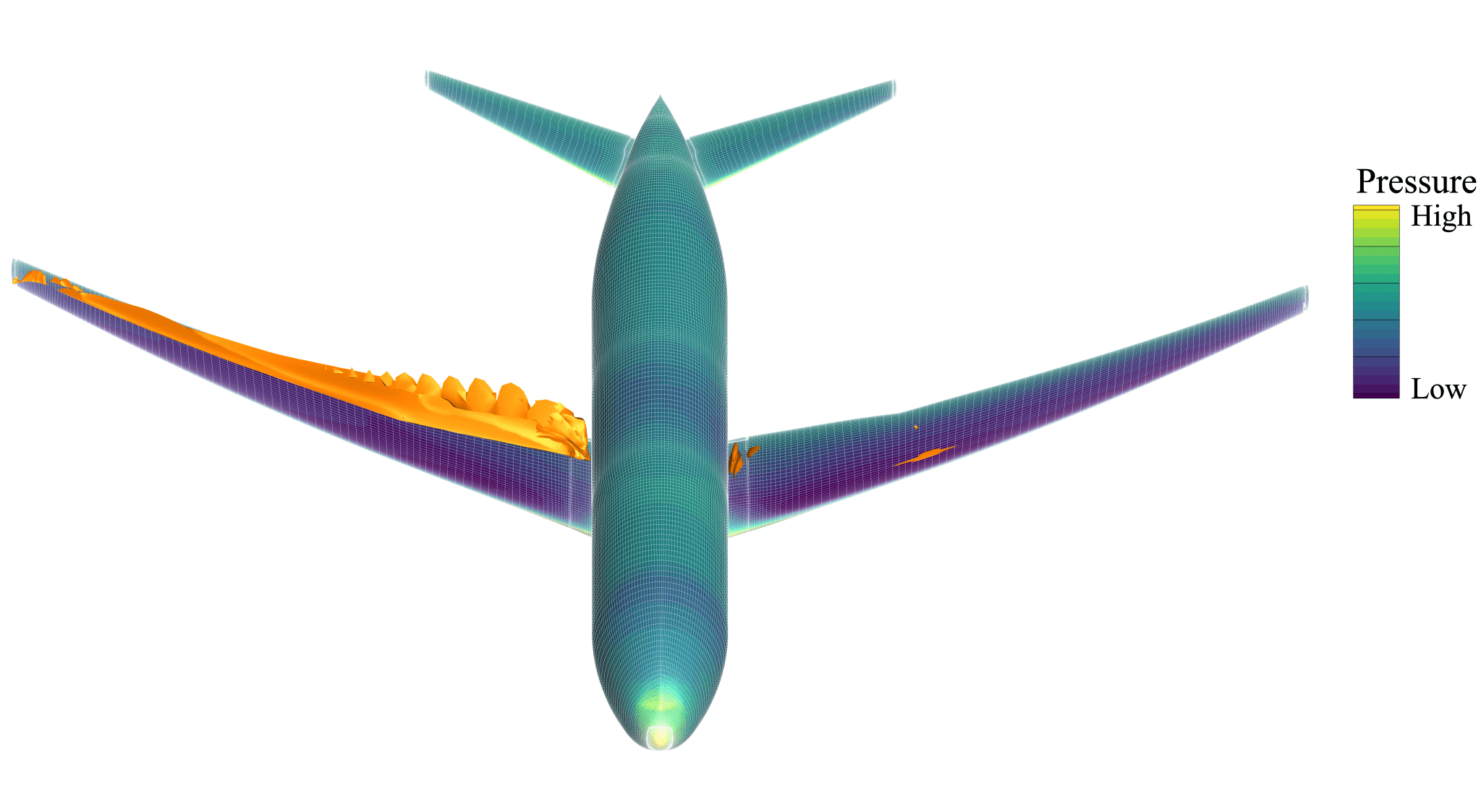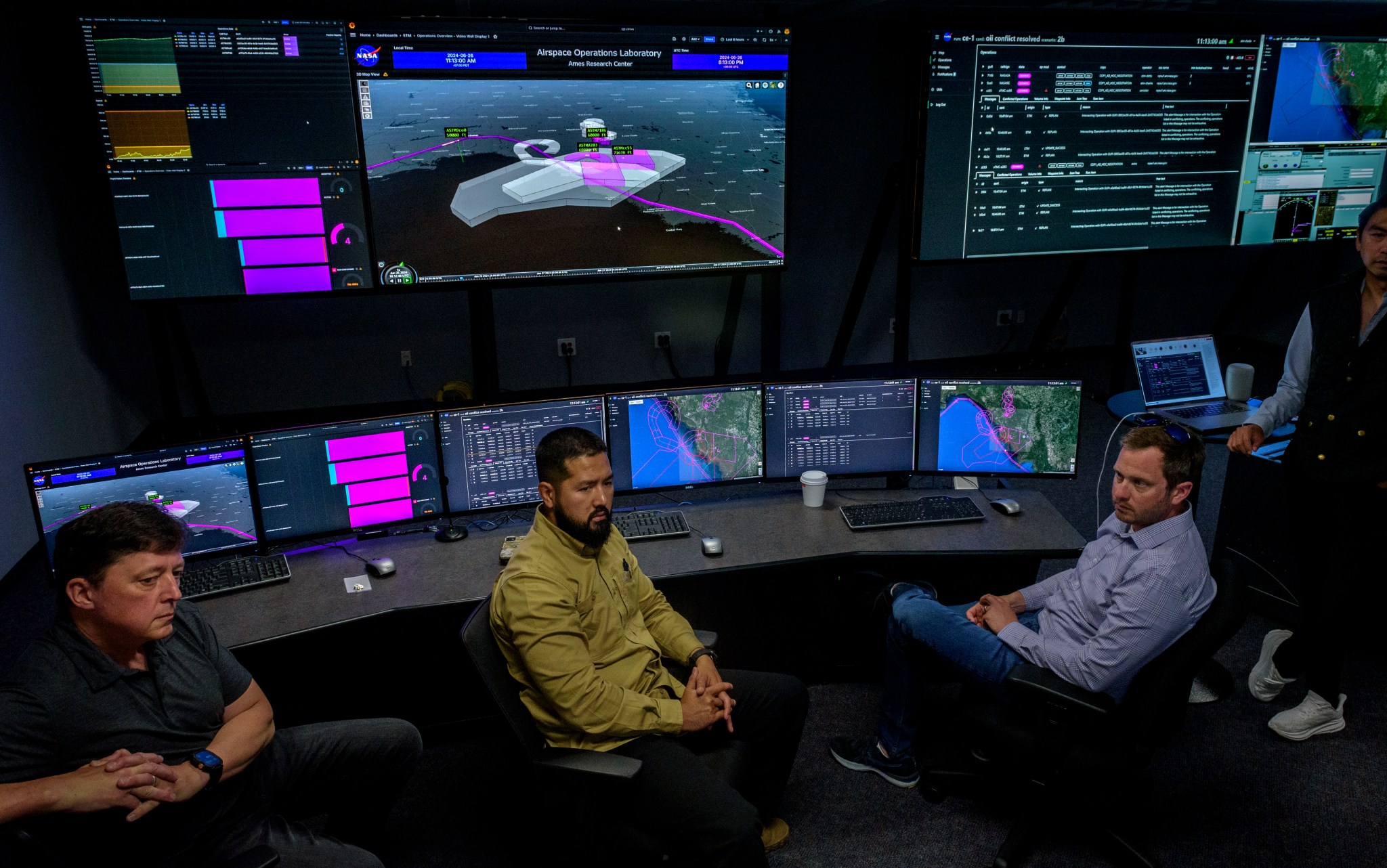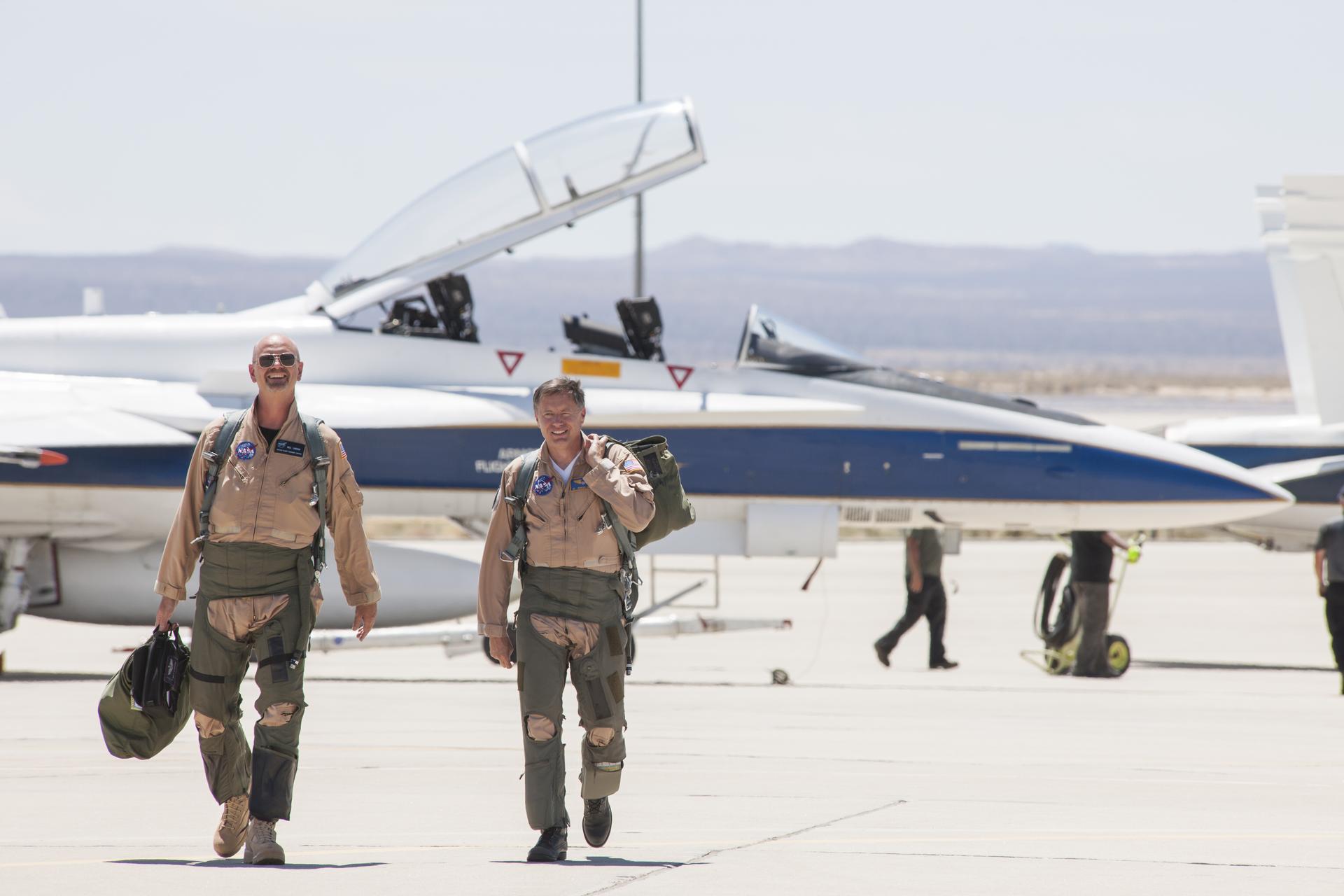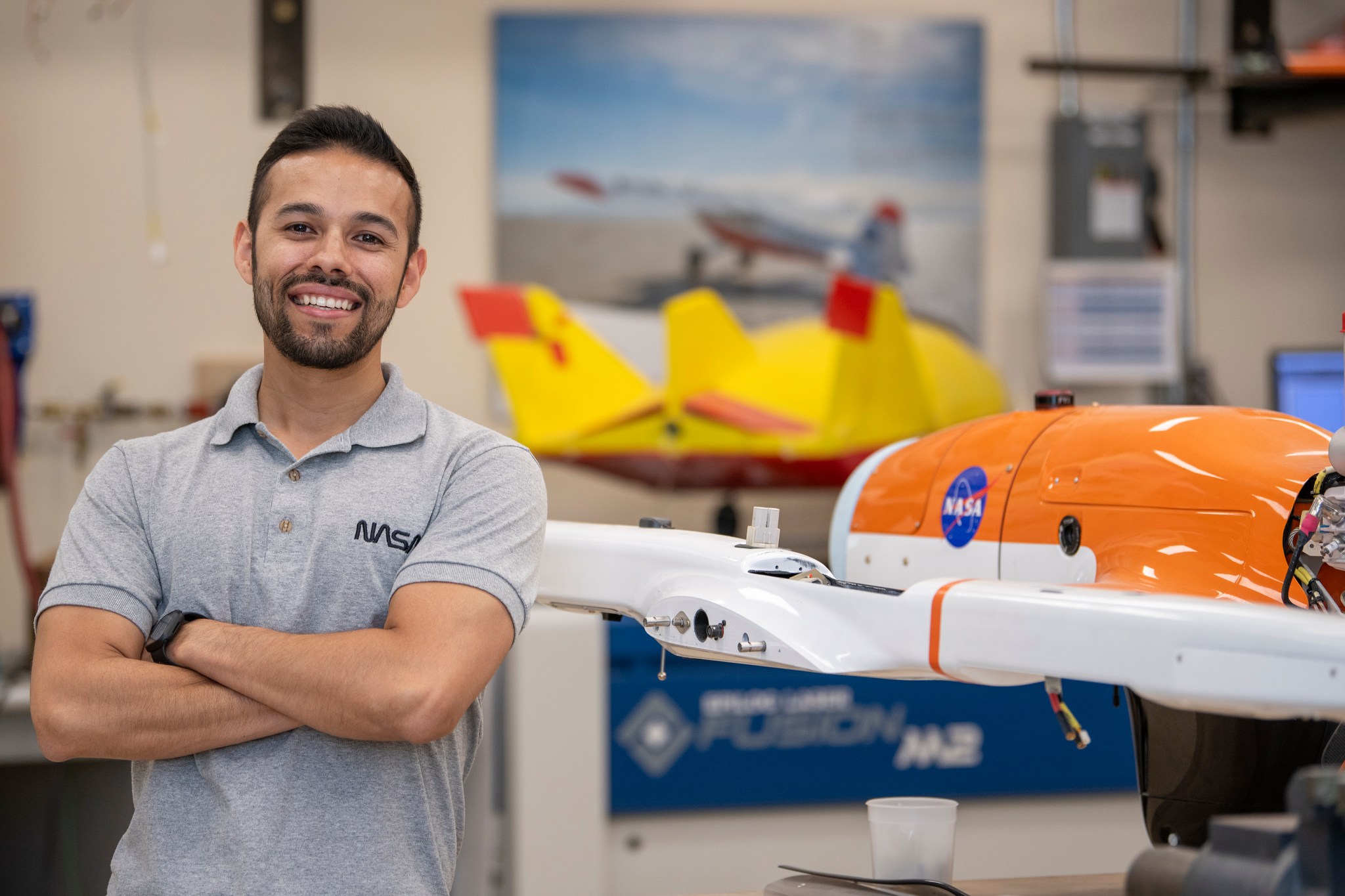4 min read Preparations for Next Moonwalk Simulations Underway (and Underwater) Un detalle de la sonda de detección de impactos de la NASA resalta sus puertos de presión, diseñados para medir los cambios de presión del aire durante el vuelo supersónico. La sonda se montará en el F-15B de la NASA para realizar vuelos de calibración, validando su capacidad de medir las ondas de choque generadas por el X-59 para la misión Quesst de la NASA. NASA/Lauren Hughes Un F-15B de la NASA realiza un vuelo de calibración de una…
Read MoreTag: Aeronautics
NASA Accelerates Space Exploration, Earth Science for All in 2024
With a look back at 2024, NASA is celebrating its many innovative and inspiring accomplishments this year including for the first time, landing new science and technology on the Moon with an American company, pushing the boundaries of exploration by launching a new mission to study Jupiter’s icy moon Europa; maintaining 24 years of continuous human exploration off the Earth aboard the International Space Station, and unveiling the first look at its supersonic quiet aircraft for the benefit of humanity. The agency also shared the wonder of a total eclipse…
Read MoreNASA to Test Technology for X-59’s Unique Shock Wave Measurements
3 min read Preparations for Next Moonwalk Simulations Underway (and Underwater) A close-up of NASA’s shock-sensing probe highlights its pressure ports, designed to measure air pressure changes during supersonic flight. The probe will be mounted on NASA’s F-15B Aeronautics Research Test Bed for calibration flights, validating its ability to measure shock waves generated by the X 59 as part of NASA’s Quesst mission to provide data on quiet supersonic flight. NASA/Lauren Hughes NASA’s F-15B Aeronautics Research Test Bed performs a calibration flight of the shock-sensing probe over Edwards, California, on…
Read MoreNASA Flips Efficient Wing Concept for Testing
3 min read Preparations for Next Moonwalk Simulations Underway (and Underwater) NASA/Quincy Eggert Upside down can be right side up. That’s what NASA researchers determined for tests of an efficient wing concept that could be part of the agency’s answer to making future aircraft sustainable. Research from NASA’s Advanced Air Transport Technology project involving a 10-foot model could help NASA engineers validate the concept of the Transonic Truss-Braced Wing (TTBW), an aircraft using long, thin wings stabilized by diagonal struts. The TTBW concept’s efficient wings add lift and could result…
Read MoreNASA Experts Share Inspiring Stories of Perseverance to Students
3 min read Preparations for Next Moonwalk Simulations Underway (and Underwater) A group of middle school students engage with a model aircraft while learning from NASA experts in the model lab at NASA’s Armstrong Flight Research Center in Edwards, California during an event hosted by NASA’s California Office of STEM Engagement. NASA/Steve Freeman In celebration of National Aviation History Month, experts from NASA’s Armstrong Flight Research Center in Edwards, California, spoke with middle school students during a recent event hosted by NASA’s California Office of STEM Engagement. NASA Armstrong employees…
Read MoreNASA Engineer Carries Indigenous Roots into New Aviation Era
5 min read Preparations for Next Moonwalk Simulations Underway (and Underwater) Abigail Reigner, a systems engineer at NASA’s Glenn Research Center in Cleveland, supports the agency’s research in electrified aircraft propulsion to enable more sustainable air travel. Behind her is a 25% scale model of NASA’s SUbsonic Single Aft eNgine (SUSAN) Electrofan aircraft concept used to test and demonstrate hybrid electric propulsion systems for emission reductions and performance boosts in future commercial aircraft. Credit: NASA/Sara Lowthian-Hanna Growing up outside of Philadelphia, Abigail Reigner spent most of her childhood miles away…
Read MoreSix Ways Supercomputing Advances Our Understanding of the Universe
At NASA, high-end computing is essential for many agency missions. This technology helps us advance our understanding of the universe – from our planet to the farthest reaches of the cosmos. Supercomputers enable projects across diverse research, such as making discoveries about the Sun’s activity that affects technologies in space and life on Earth, building artificial intelligence-based models for innovative weather and climate science, and helping redesign the launch pad that will send astronauts to space with Artemis II. These projects are just a sample of the many on display in…
Read MoreNASA and Partners Scaling to New Heights
3 min read Preparations for Next Moonwalk Simulations Underway (and Underwater) NASA and partners from Aerostar and AeroVironment discuss a simulation of a high-altitude air traffic management system for vehicles flying 60,000 feet and above in the Airspace Operations Lab (AOL) at NASA’s Ames Research Center in California’s Silicon Valley. NASA/Don Richey NASA, in partnership with AeroVironment and Aerostar, recently demonstrated a first-of-its-kind air traffic management concept that could pave the way for aircraft to safely operate at higher altitudes. This work seeks to open the door for increased internet…
Read MoreNASA Pilots Add Perspective to Research
4 min read Preparations for Next Moonwalk Simulations Underway (and Underwater) NASA pilots Nils Larson and Wayne Ringelberg head for a mission debrief after flying a NASA F/A-18 at Mach 1.38 to create sonic booms as part of the Sonic Booms in Atmospheric Turbulence flight series at NASA’s Armstrong Flight Research Center in California, to study sonic boom signatures with and without the element of atmospheric turbulence. NASA/Lauren Hughes NASA research pilots are experts on how to achieve the right flight-test conditions for experiments and the tools needed for successful…
Read MoreNASA Spotlight: Felipe Valdez, an Inspiring Engineer
3 min read Preparations for Next Moonwalk Simulations Underway (and Underwater) Felipe Valdez, a NASA engineer at Armstrong Flight Research Center’s Dale Reed Subscale Flight Research Laboratory, stands next to a subscale model of the Hybrid Quadrotor (HQ-90) aircraft. NASA / Charles Genaro Vavuris Felipe Valdez is someone who took advantage of every possible opportunity at NASA, working his way from undergraduate intern to his current job as a flight controls engineer. Born in the United States but raised in Mexico, Valdez faced significant challenges growing up. “My mom worked…
Read More